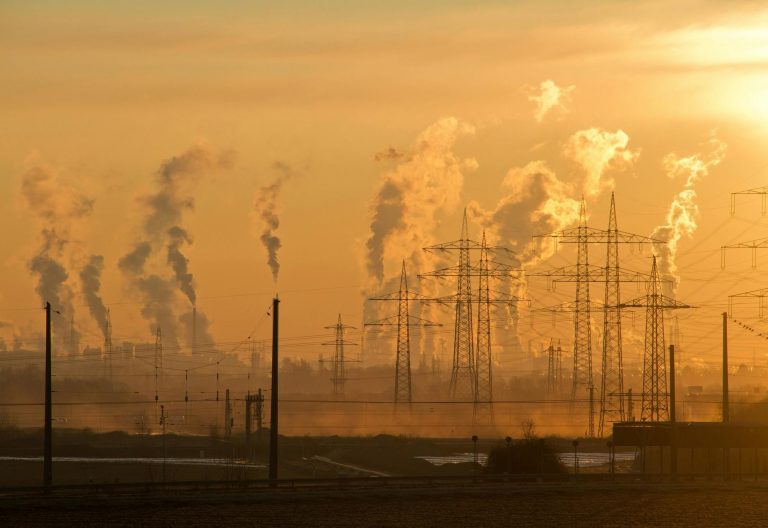New study shows impact of climate change on teenagers’ mental health

Worsening climate change impacts have triggered a wave of mental health problems among teenagers in many African countries, a new study has revealed. The study focused on teens in rural Madagascar found that hardship caused by severe drought, floods and storms is taking a dramatic toll on young people’s emotional wellbeing in climate-hit countries, with the effects going far beyond climate anxiety.
“The fears that they go through are in the present tense, not the future tense,” said Samuel Solomon, a psychology professor at University College London (UCL) and co-author of the research conducted in remote villages in the south of Madagascar, the island nation of Africa’s southeast coast.
Psychiatrists have established the connection between climate change and mental health. The impacts of climate change are now common – with news about extreme weather events, droughts and waters scarcity, wildfires, and flooding and their impacts on agriculture and human systems. Air pollution and higher temperatures that come with rising greenhouse gases significantly increase the risk of neurological and psychiatric problems such as strokes and dementia, according to psychiatrists.
Pain of uncertainty
Changes in the supply and nutritional content of food contribute to psychiatric illness, and changes in infectious disease patters are exposing more people to the neuropsychiatric consequences of encephalitis (a serious condition caused by the inflammation of the brain).
Climate change has a significant and growing impact on mental health, leading to various challenges like climate anxiety, eco-grief, and heightened stress. These mental health concerns are triggered by the physical and social disruptions caused by climate change, including extreme weather events, rising temperatures, and the overall uncertainty about the future.
Direct impacts of climate change include extreme weather events such as floods, hurricanes, and heat waves, which can cause trauma and exacerbate existing mental health conditions.
Indirect impacts of climate change can lead to economic hardship, displacement, and social unrest, further impacting mental wellbeing.
Overarching impacts of climate change are reflected in the long-term emotional distress caused by the threat to the planet and future generations, which can lead to feelings of helplessness, anxiety and depression. Climate anxiety means heightened emotional distress, fear and worry related to the changing climate, while eco-grief is the emotional distress experienced due to the loss of natural environments and biodiversity.
Droughts can lead to impaired mental health and stress. Increased frequency of disasters with climate change can lead to post-traumatic stress disorder, adjustment disorder, and depression. Changes in climate and global warming may require population to migrate, which can lead to acculturation stress.
As climate change impacts take a heavy toll on young people’s wellbeing in poor rural areas, how can policy makers help them cope? Researchers in the study in rural Madagascar sought to find out how.
Writing in the UK-based Climate Home News digital publication, Paula Dupraz-Dobias says the study revealed that teaching climate-resilient farming to young people in rural Global South communities and encouraging them to stay in school, could help ward off mental health problems triggered by worsening climate change impacts.
Madagascar, which is classified by the United Nations as one of the world’s most climate-vulnerable countries, is repeatedly affected by drought, extreme heat and cyclones, exacerbating hunger and setting back development in a nation where about three-quarters of the population are poor.
The situation in the south of the country is particularly dire due to changes in the climate, “with fertile land turning into desert and water sources depleting”,” said the study conducted among 83 participants with an average age of 15 in six communities.
The groundbreaking study, one of the first to measure the mental health effects of climate change on young people in the Global South – found “extremely high” levels of depression, anxiety and climate worry.
Its authors linked that in part to the huge impact of climate disasters on household resources. Over the previous year, 90 percent of the respondents had seen their families running out of food and nearly 70 percent had gone a day without eating.
The researchers also found that the loss of coping mechanisms – particularly attending school – made matters worse.
“Before, despite difficulty we continued to go to school but now we stopped because our parents have no income,” one girl said in the study, which was funded by a British development and grant and published in the Journal of Climate Change and Health.
Besides policies designed to keep children in education, the report said the young people in subsistence farming communities should be trained on how to adapt their agricultural practices to climate change. Such strategies apply to tackling youth mental health in climate vulnerable-nations in particular, Isabelle Mareschal, UCL professor of visual cognition, told Climate Home.
“It’s great to develop policies that are relevant to developed countries where people can get involved in activism, but in developing countries … the kind of solutions needed will be very different and will need to involve local voices,” Mareschal said.
Strengthening food and water security would also reduce the mental health strain of climate impacts, the study said. Around the world, calls are growing for policy makers to pay more attention to the effects of climate change on people’s emotional wellbeing.
According to the World Health Organization (WHO), only three percent of countries’ action plans include mental health support.
Stories of resilience
During a panel about climate anxiety at last November’s UN climate summit (COP30) in Baku, Azerbaijan, Emma Lawrence, policy lead at the Connecting Climate Minds initiative, said policy makers need to be more aware of how youth are suffering.
“Decision-makers are failing young people,” Lawrence said, adding that empowering them to take action and participate in the process of building a better future would help.
Climate activism is often prescribed for people who are struggling to deal with a warming planet, but that is rarely an option for young people in poor, rural communities, the authors of the Madagascar study noted. Youth living in the Global South, however, are increasingly joining forces on climate action, often motivated by personal experiences of climate-related disasters.
Nigerian climate activist Ayomide Olude, 26, said her growing anxiety about climate change drove her to join SustyVibes, a group which organises events where young people can share their concerns. The Nigerian organisation is part of Connecting Climate Minds, a Wellcome Trust-funded global initiative that links people across regions to improve understanding of the impact of climate change on mental health. Olude also helps organise climate awareness training for Nigerian mental health professionals.
Congolese teenager Emmanuel Jidisa said his albinism has made him acutely aware of climate issues since he was a child – and his family lost everything when devastating floods hit the Democratic Republic of the Congo in 2022 killing at least 141 people.








